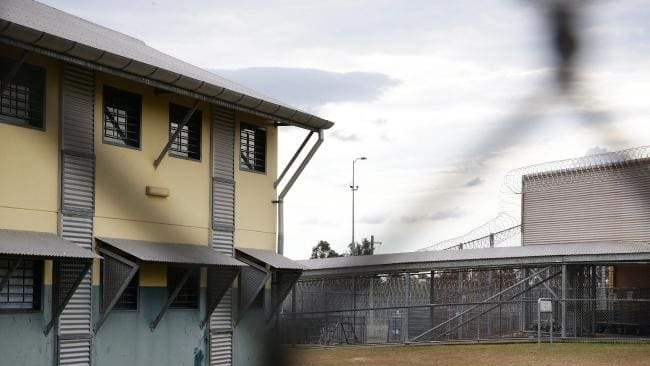‘Psychopathic’ killer who killed elderly woman, strangled fellow inmate has parole term set aside by court
A “psychopathic” killer jailed for murdering an elderly woman and fatally strangling a fellow inmate has scored a major court win against the duration of his parole term.
A “psychopathic” killer convicted for murdering an elderly woman and setting fire to her home, before strangling an inmate to death, has successfully appealed terms of an order preventing him from applying for parole.
Rodney George Anderson was serving a life sentence for the 1995 murder of 77-year-old Ethel Adamson in her Moorooka – setting fire to her home in the process – when he murdered a fellow inmate five years later by strangling him with a TV aerial cord.
He became eligible for parole in November 2020.
But the Parole Board of Queensland (PBQ) in 2023 made a declaration naming him as a restricted prisoner – effectively barring Anderson from applying for parole for eight-and-a-half years.
The order meant Anderson was prohibited from applying for parole until December 2031 – by which time he will be 78.
In an appeal of the order to the Supreme Court, Anderson challenged the length of the term while citing his declining health conditions in custody.

They include chronic kidney disease, type-2 diabetes, epilepsy, hypertension, and poor mobility requiring the use of a wheelchair.
“None of his conditions are immediately life threatening, however, he is at risk of acute deterioration due to his underlying health issues,” Supreme Court Justice Rebecca Treston said in her judgment.
“His mobility is very poor and he is experiencing regular falls.”
A letter from a medical officer stated Anderson’s needs were being met in custody but this would change as his condition declined.
The decision to make a restricted prisoner declaration was outlined in a letter from President of the PBQ, which detailed the serious nature of offences that landed Anderson a life-imprisonment conviction, the harm he may pose to the public if granted parole and the effect the release on parole may have on the Anderson or another victim.

Anderson had a “psychopathic” personality, “poor impulse control and demonstrated high levels of aggression” and was at risk of “engaging in fire-setting behaviours”, according to a psychiatric report and a letter from the PQB president.
“I have been informed that the prisoner presents as requiring a high level of support if he were to be released, the kind which is most likely to be facilitated in a nursing home,” the president’s letter stated.
“However, given his particular risk towards vulnerable persons, it is unlikely this plan would be feasible.
“Given the above and considering all information and material before me, I am satisfied that there is a risk the prisoner may pose to the public if he is granted parole, particularly as the prisoner is a psychopath and a pyromaniac who continues to pose a moderately high risk of violent recidivism despite his advancing age and noted health issues.”

In her decision, Justice Treston found the term of the restricted prisoner declaration failed to adequately consider the human rights consequences for Anderson, particularly in light of his numerous serious and worsening medical conditions.
More Coverage
Justice Treston declared that the period imposed under the Restricted Prisoner Declaration — the term of eight-and-a-half years — was invalid and must be set aside.
The court found that the “public interest” consideration for deciding the term of the declaration must be broader than just the risk factors, such as nature of the offence, risk to public and the effect on victims.
The parties will discuss the specific court order needed to implement this decision.



